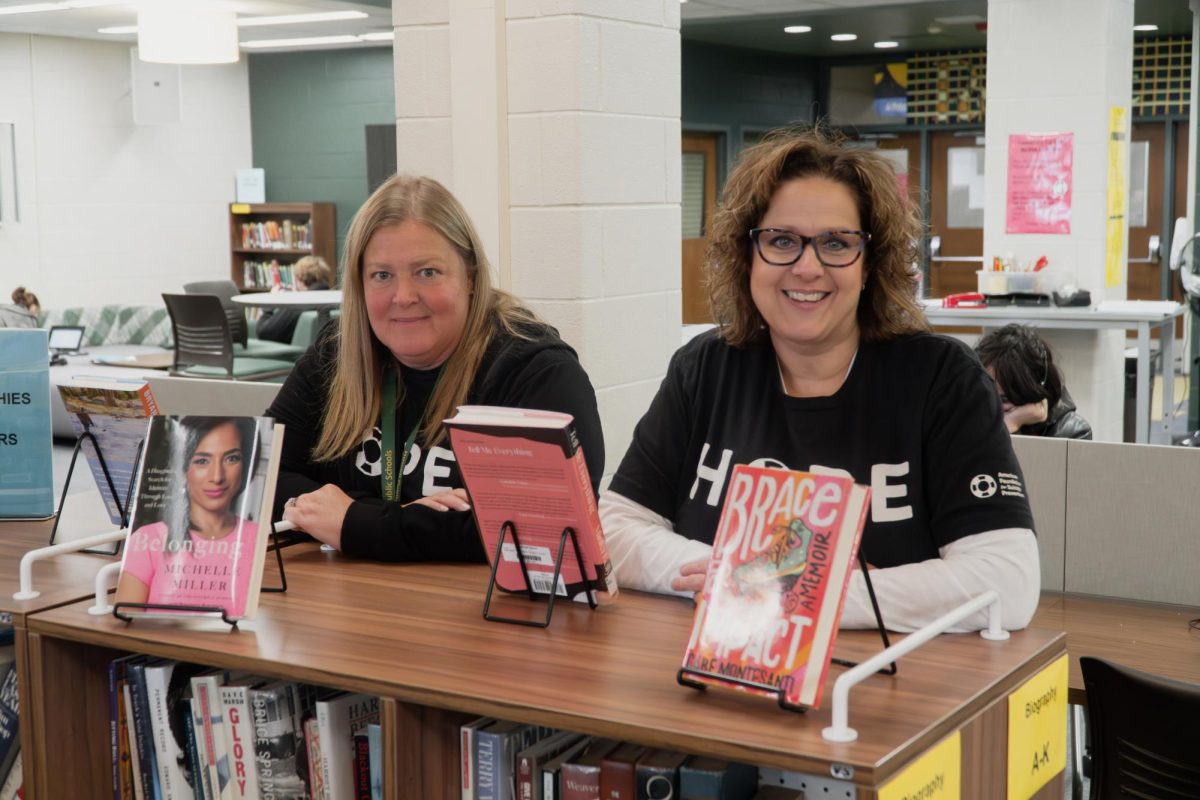When a high school student finds out a classmate has a paid job, their response generally leans towards, “cool” or “lucky!” Having a good amount of spending money is one characteristic of working teens that has reason to cause jealousy. However, working teens can also be characterized as the ones who have the darkest circles under their eyes and who race to finish their homework on time.
According to the Federal Bureau of Statistics website, in the U.S., about 26% of teenagers have paid jobs. At Howell High School, the percentage may even be larger than that. Ms. Jill Sweeso, a secretary in the main office, sometimes receives two to three work permit forms a day from students. These forms must be signed by the principle to give a student permission to work.
Paid work may be a great opportunity for students, but it can come with many negative effects. Cassie Stewart, HHS junior, knows this firsthand. Stewart has been working as a waitress for more than three months and averages about 18 hours of working a week (the maximum for minors is 24). She started working in the summer, but when school started, work, and the plays she acts in, began to take up much of her time.
“I have play practice from 2:30 p.m. to 4:00 p.m. Then, I have to go to work after. So by the time I get home, I’m too tired and don’t have time to open my backpack,” Stewart says.
Stewart has also noticed a significant drop in her grades. She says, “I used to have a 3.8 GPA and now I’m scared to check Powerschool.”
These negative effects are noticed by the teachers as well. English teacher Ms. Lois Nolan has a majority of students who have part-time jobs during the school year and she has noticed a trend between them.
“The job becomes their priority [over school],” Ms. Nolan says. As students experience the benefits of receiving a paycheck, they can sometimes put more effort into the job.
Ms. Nolan has also noticed that her working student’s schoolwork often suffers. “They don’t have time to read the novel or do the assignment,” she says.
Lack of time for homework is one trend between working teens that is occurring nationwide, according to the National Center for Biotechnology Information website. Other effects of working may include dropping out of school or substance abuse problems and even health problems, such as anxiety and stress.
Another teacher at HHS who has noticed these negative effects is math teacher Mr. Jeffrey Klapper. “Working over 12 hours a week will most likely affect their schoolwork,” Mr. Klapper says.
The effects on students can last long after they get home. When students are exhausted by work, they often don’t have the motivation to complete assignments afterwards.
However, There are many positive effects of students working. “Jobs can turn students into time managers,” Mr. Klapper says.
Klapper notes that students who don’t have anything to do after school can procrastinate completing their homework, which can sometimes make teens who work more productive.
According to the Federal Bureau of Statistics website, other positive effects include students saving money for college, real-world preparedness, and pressure taken off parents when teens can begin spending their own money.
Some of these positive effects have been experienced by Autumn Leonard, HHS junior, who has been working for eight months and averages about 20 hours a week. Leonard, who also plays basketball, has felt the pressure of working, playing a sport, and going to school.
“At first it was rough, but my GPA is higher now than when I didn’t have a job. I work harder in school knowing my grades could drop,” Leonard says.
Leonard works as a crew member for McDonalds, which may be a stressful job at times, but she enjoys meeting people and being out in the real world.
“I have a feel for what it’s going to be like in college, between balancing school and having a job, so it gets me ready for the future,” she says.









